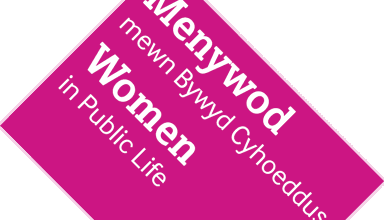There are challenges to ensuring public appointments reflect the wider population in Wales.
For example, data published in March 2025 by the Welsh Government suggests that there is an under representation of disabled people on Public Sector Boards (14% compared to 21% of the general population).
In October 2022, the Senedd’s Public Accounts and Public Administration Committee launched an inquiry into public appointments. The Committee set out to consider, among other things, barriers to ensuring diversity in public appointments.
In its subsequent report, the Committee has raised several concerns relating to the lack of diversity of candidates for public roles and the accessibility of the appointment process.
This article looks at some of the issues impacting diversity in public appointments in Wales.
What are public appointments and why do they matter?
Public appointments generally refer to government-appointed positions on public bodies. The Welsh Government makes a wide range of public appointments. These include chairs, board members, commissioners and regulators.
For example, senior appointments made by Welsh Ministers include:
- Chairs and non-executive board members of bodies such as Natural Resources Wales, Qualifications Wales and the National Museum;
- Chairs, vice-chairs and non-executive members of the seven local health boards, NHS trusts and non-executives of certain other health bodies; and
- The four statutory commissioners for children, older people, future generations and the Welsh language.
These roles offer opportunities to influence how these bodies are governed.
Why did the Committee look into this?
Ensuring diversity in public appointments helps ensure that public bodies reflect the communities they serve.
In the foreword to the Committee’s report, Chair Mark Isherwood MS stated that public appointments should enable those from diverse backgrounds to “contribute to directing and managing public services and become key part of the accountability and governance process”.
The Committee decided to consider the Welsh Government’s approach to the public appointments process, including where this could be improved to increase the diversity of candidates for public appointments made by Welsh Ministers.
What’s currently in place to encourage diversity?
Public Bodies Unit
The Committee considered the role of the Welsh Government’s Public Bodies Unit (PBU), which oversaw public appointments. This oversight included measures to support improving diversity and inclusivity in the public appointments process.
According to the Welsh Government, the PBU provided “the framework for governance and accountability for all Arm’s Length Bodies”.
However, some individuals who have held public roles found that the PBU was not visible and often slow to respond to enquiries about public appointments.
The Senedd Commission Citizen Engagement Team held interviews with people that have held, currently hold, or have applied for public appointment positions. During an interview, an interviewee said::
It feels like the public appointments unit is in the basement of the Welsh Government and nobody wants it to be found. If we want a more diverse organisation across Wales, that’s representative, that public appointments unit needs to be more public-facing.
The Committee’s inquiry found the PBU’s role in relation to public appointments to be “confusing and unclear” and found that many people seeking public appointments were “unaware of its existence”.
It recommended that the Welsh Government “rebrands and relaunches” the PBU, including ensuring that it has clear roles and responsibilities and is public-facing.
In response, the Welsh Government said that the PBU has been disbanded, and that its functions have been “realigned with corporate centres of expertise”.
Diversity and Inclusion strategy
In 2020, the Welsh Government published its Diversity and Inclusion Strategy for Public Appointments for the period 2020-2023. The strategy aimed to:
- Create more open and more transparent processes at all levels of decision making including advertising, recruiting and interviewing and further up the chain;
- Challenge barriers faced by protected groups such as limited remuneration, access difficulties, unconscious bias and others; and
- Create systems that use all talents and respect difference and that are based on the lived experience of protected groups.
The Welsh Government published an action plan for the first year of the Strategy. The Committee was told that of the 44 targets in this plan, only 28 had been met. No further action plans have been produced.
While witnesses were generally supportive of the Strategy’s aims, several questioned how far it had been implemented.
The Committee stated that it is “very concerned” that the Welsh Government has not committed to a timeframe for a new Strategy. It added that it is “appalled” that the Strategy is over a year out of date and that there “has been no evaluation, consultation, action, or even a plan to replace it”.
In its response to the Committee’s report, the Welsh Government said the strategy will be reinstated until May 2026, and that a formal evaluation of the strategy is “being scoped”.
The recruitment process
The recruitment process can pose barriers that impact on the diversity of public appointees.
Damian Bridgeman of Social Care Wales said that the PBU lacks awareness of what reasonable adjustments can be offered for applicants. He added that the onus is placed on candidates to ask for specific things, such as screen readers and other assistive technologies (some of which don’t work with generic applications systems), rather than the PBU offering solutions proactively to applicants.
The lack of accessibility and ease of use of the current application software was also reported as a barrier in the Citizen Engagement Team survey (for example, the difficulties of using PDFs with screen readers was raised).
The Committee concluded that it has “serious concerns” about the application process, and that it is “deeply concerned” to hear that the PBU has a lack of awareness of what reasonable adjustments can be offered to candidates. It has recommended that the PBU works to address this, and has requested an updated in six months’ time.
The Welsh Government agreed to provide an update by October 2025.
A “series of failings”
Committee Chair Mark Isherwood MS said that the inquiry had “exposed a series of failings” in how the Welsh Government is ensuring it has the widest breadth of quality and diverse candidates for public appointments.
The Committee’s report also covered matters relating to the collection of data on diversity and public appointments made by the Senedd. It also published a supplementary report which explored (and recommended) the establishment of a dedicated Public Appointments Commissioner for Wales.
The Welsh Government published its response to the Committee on 18 June 2025, though it does not state whether it has accepted or rejected the recommendations. Committee members expressed disappointment at the response; Chair Mark Isherwood MS described it as disrespectful to the Committee and the Welsh Parliament.
Members will have to chance to discuss matters raised by the Committee and the Welsh Government’s response when the report is debated on 25 June 2025. You can watch the debate live on Senedd.tv.
Article by Adam Cooke, Senedd Research, Welsh Parliament.






